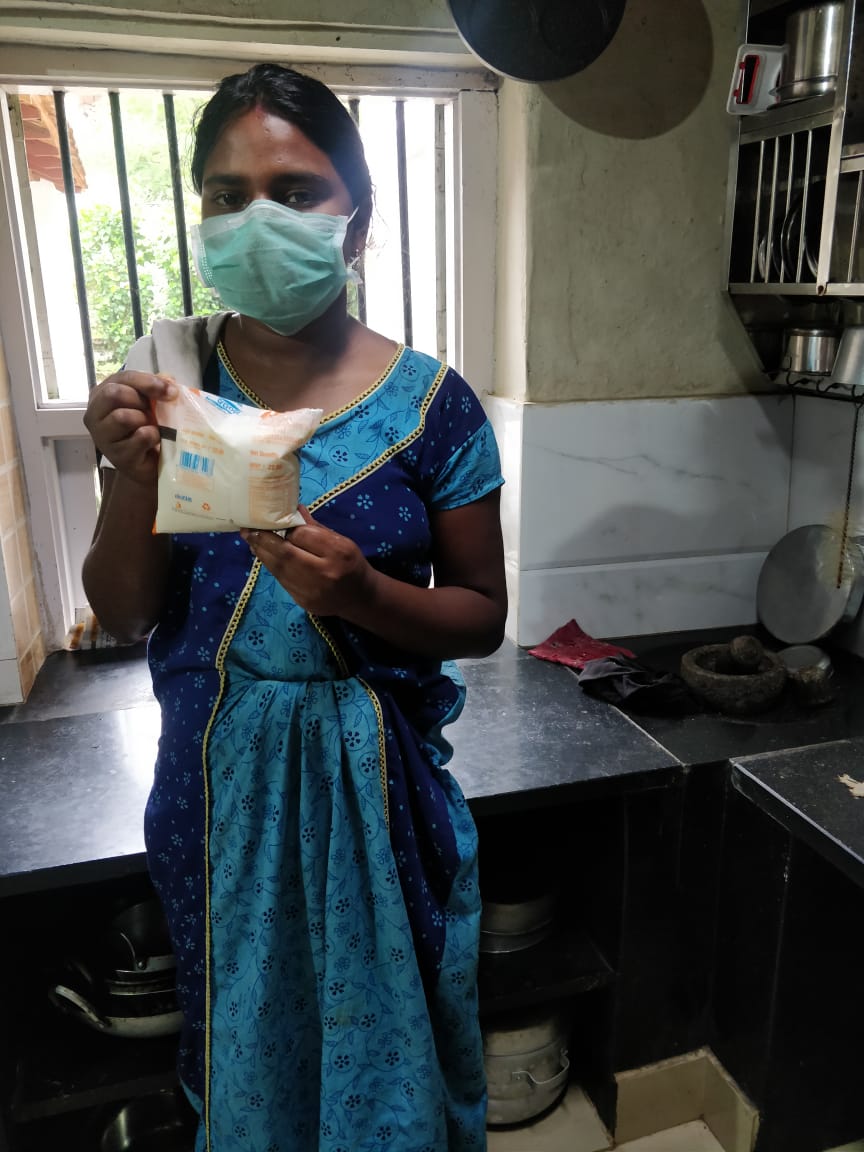
By Samatha Kudige V
All the citizens are equal in the eyes of democracy. But are they? While
this is true in-principle, sadly, this lofty statement remains a pipe dream.
The reality is, and always has been, that some people are more equal than the
others. Ours is a world where whom you know matters. That's why corporate
houses pay big money to lobbyists to connect them with the movers and shakers
in the government machinery. The upper class flaunt their connections to throw
their weight around. The middle class to curry favours, like a Tatkal train
ticket in VIP quota or a seat for their child in a Kendriya Vidyalaya using a
highly placed government officer's influence.
One might think it's only the well-to-do sections of our society that
thrive on such connections to get ahead in life. Turns out, it's not only the
greedy but the needy too who need these connections, this influence. Not to get
ahead in life but to just get by. Not for their wants but for bare essentials.
Take milk, for example. The much-hailed complete food recommended for
children. The Karnataka government has introduced uchitha haalu, a
free-milk scheme for the poor but here too, meeting the eligibility criteria
alone isn't good enough. You need to know somebody who knows somebody involved
in the distribution at the ground level. I learnt this from the tales of two
women: my domestic help and an elderly woman who makes sweetmeat and sells to
the households in the locality.
One afternoon, my maid Nethra came to work with puffy eyes and a
crestfallen face. Those who know her know what—or rather who—gives her grief.
Her husband. While Nethra works in households like ours and often relies on the
vegetables she picks from our kitchen gardens to make ends meet, her husband
whiles away time and picks fights with her. He loves his morning tea. She has
been availing of the government's uchitha haalu scheme and bringing home
free milk. However, she hid from her husband that this is free milk and would
take Rs25 from him every day to 'buy' it. When he found out, he got furious and
whacked her.
With a lump in her throat, Nethra said she had been merely saving this
amount every day to arrange for grocery. Her husband downs his tea, eats a
plateful of chitranna and merrily dozes off, with his toddy proving
enough for him to see the day through. However, Nethra said she and her
daughter need to eat; she had been lying to him merely to save up to put food
on the plate.
There are many poor women like her for whom the government's free-milk
scheme is a big relief and eases up their financial woes, even if a bit. For
families that lead a hand-to-mouth living, such welfare schemes are a major
part of their survival plan. Without sops, many families and their children go
by hungry or have to skip meals. In a country that's still struggling to get
over the bane of malnutrition, schemes such as subsidised or free edibles to
the poor are a necessity for the millions who depend on them.
That said, is merely rolling out such schemes enough? Does making free
milk available to the poor actually mean the poor can avail of free milk? Not
necessarily. Not if you don't know somebody who can put in a word for you.
Turned out that in the case of Nethra, she got lucky because the owner of the
tiny room they live in knows somebody. Not every poor is that fortunate. Take
the case of Jayakka for example. She is a household name in our locality. Her
condiments are always in demand and she always delivers on time.
Recently, she was venting about how it has become tough to meet
household expenses. She is a proud grandmother of three. She mentioned that
meeting daily expenses for milk, vegetables and grocery are increasingly
becoming a challenge. I asked her why she wasn't claiming her family's share of
free milk under the uchitha haalu scheme. With a wry smile on her face,
she said if you don't know the ones in charge of distributing the milk, it's
futile to even hope for it.
How many poor families out there can hope to have connections that help
them get what they deserve? While governments pat themselves on the back for
introducing pro-poor measures, what about seeing through their implementation?
There’s many a slip between the cup and the lip. And it’s the poor who get
affected the most when such a slip spills their share of milk. For, it means
either their children go hungry or they skip a meal to buy them milk. Despite
the existence of a welfare government and all its populist schemes, shoddy
implementation means our poor are left to fend for themselves. The government
might say it has their back but they know they are on their own. They
know there’s no such thing as a free lunch.